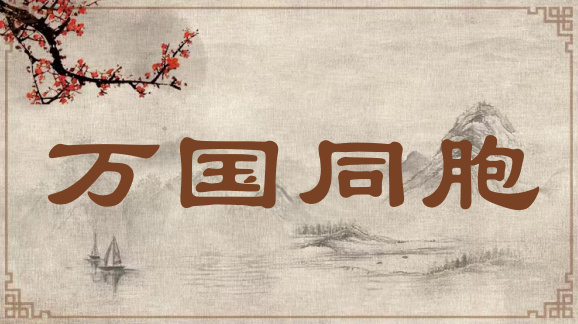The People of All Countries Are Brothers and Sisters

世界各國的人都像一家人一樣。“愛人”是中華人文精神的內核,且不以家族、種族、國界等為限,而是普被人人、具有普遍價值的理念;而“同胞”一詞也早已超越了血親家族范圍,進而指同一民族或國家,特別是具有共同語言和歷史文化的人,甚至超越民族、國家等界限,泛指整個人類。人及萬物同源,皆由天地所生;生而為人,更應該相互友善,視同一家。可以說,其中蘊含的平等、博愛觀念是人類共同的精神財富。
The people of all the countries in the world are like members of one family. "Love of people" is the core of the humanistic Chinese spirit. It is not limited by family, race or national boundaries; rather, it is a concept of a common value which extends to each individual. The term tongbao (同胞) has long exceeded the scope of blood relatives and grown to mean people of the same ethnic group or country, particularly those who share a common language and cultural heritage. It may even go beyond the boundaries of ethnic groups and countries and refer to the entire human race. Humans and all things share a common origin – they are created by heaven and earth; those born as people should all the more be friendly with each other and see others as family. We might say that these concepts of equality and broad love are the shared spiritual riches of the human race.
引例 Citation:
◎萬國萬姓,皆吾之同胞。豈可不保其命,使樂其生乎?(汪寄《海國春秋》第九回)
無論哪國人、哪家人,都是我一母所生的兄弟姐妹。我怎么能不保護他們的性命,使他們快樂地生活呢?
People of all countries and all families are my kith and kin. How can I not protect their lives and let them live happily? (Wang Ji: A History of the Builders in the State of Hai)
推薦:教育部 國家語委
供稿:北京外國語大學 外語教學與研究出版社
責任編輯:錢耐安





